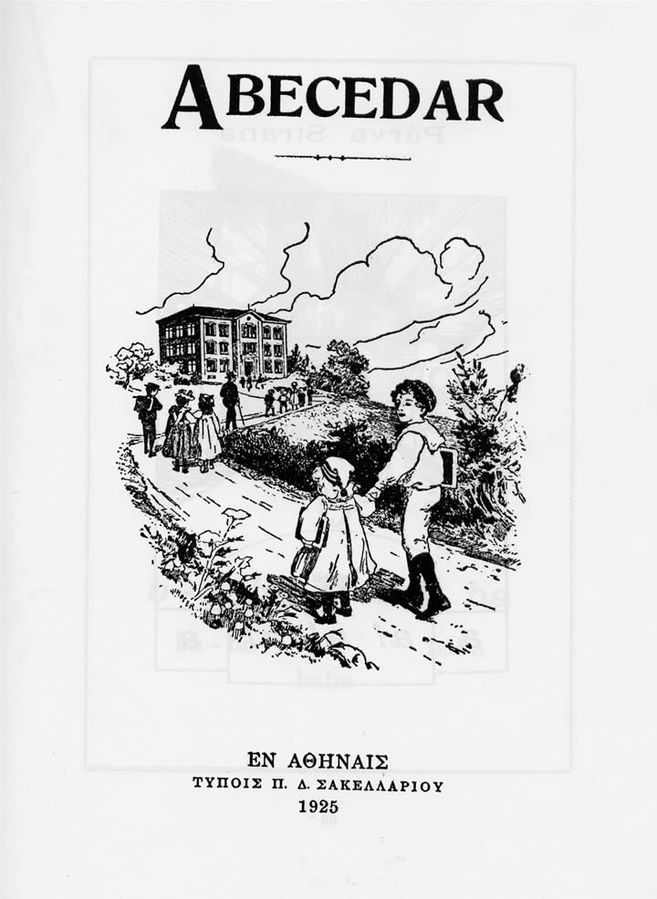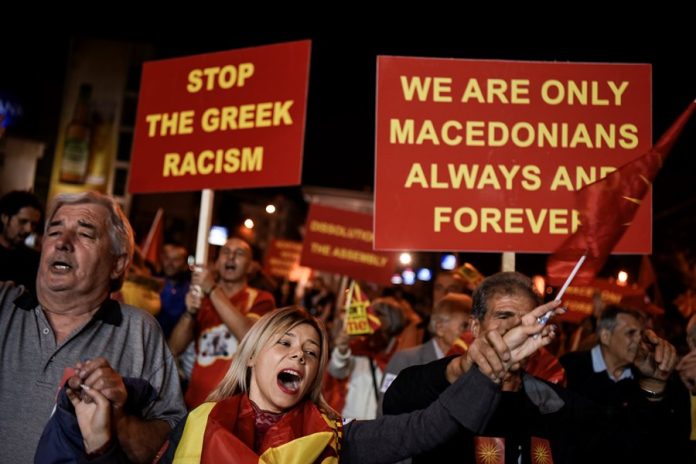In a move that has intensified the ongoing suppression of the Macedonian minority in Greece, a Greek court recently overturned the registration of the Center for the Macedonian Language, Krste Misirkov, citing concerns over its goals to preserve and promote the language. This ruling not only threatens the cultural and linguistic heritage of the Macedonian community but also highlights Greece’s persistent denial of their basic human rights. As the case heads to the Supreme Court, the fight for recognition and equality continues, underscoring the broader struggle for minority rights in Greece.
A Ray of Hope in Florina, Clouds of Darkness in Kozani
The recent legal battle over the recognition of the Macedonian language in Greece has once again highlighted the ongoing struggle for the rights of the Macedonian minority in the country. While the court in Florina previously recognized the Center for the Macedonian Language, a higher court in Kozani recently overturned that decision. The case, emblematic of a broader issue, reveals the complex and often hostile environment faced by Macedonians in Greece.
The centre, Krste Misirkov, Macedonian Movement to Promote Mother Language, established two years ago in Florina, was the first organization directly dedicated to the preservation and promotion of the Macedonian language since the signing of the contentious Prespa Agreement. This agreement, lauded by some as a diplomatic breakthrough, has been largely criticized by ethnic Macedonians for its failure to safeguard the rights of the Macedonian minority in Greece and even in the Macedonian Republic.
A Historical Language Suppressed
The Macedonian language has been spoken for over a millennium across the region of historic Macedonia, continuing to be used today despite Greece’s persistent refusal to acknowledge it as the Macedonian language. This refusal is part of a broader strategy of cultural suppression aimed at erasing the Macedonian identity from public life.
For decades, the use of the Macedonian language has been restricted, with older generations in particular finding it difficult to speak the imposed Greek language. In some cases, secret language courses have been conducted in Thessaloniki, where Macedonian was taught under the guise of foreign language instruction.
This is not a new phenomenon. Over 40 years ago, many Macedonians from Aegean Macedonia sought education in the Republic of Macedonia, learning the Macedonian literary language. However, Greece refused to recognize their diplomas, forcing them to pursue further studies in Serbia, where they also learned Serbian. Despite these obstacles, many perfected their knowledge of Macedonian and continued to promote the language within their communities.
Historical Precedent: The Suppressed ABECEDAR
The recent court ruling against the Center for the Macedonian Language is not an isolated incident but part of a long history of Greece’s suppression of the Macedonian identity. One of the most significant examples of this suppression is the story of the ABECEDAR, a Macedonian language primer printed by the Greek government in 1925. The ABECEDAR was created as a response to international pressure from the League of Nations to provide educational resources for the Macedonian-speaking minority in Greece.
However, the primer was never widely distributed, as political opposition within Greece quickly led to its suppression. The ABECEDAR’s creation, intended as a gesture towards minority rights, ultimately became a symbol of unfulfilled promises and the systematic denial of the Macedonian language and identity. The parallels between the ABECEDAR’s fate and the current legal struggles faced by the Center for the Macedonian Language are stark, highlighting a century-long pattern of resistance to recognizing the Macedonian minority in Greece.
This historical context underscores the deep-seated challenges that the Macedonian community continues to face in their fight for cultural and linguistic rights. The suppression of the ABECEDAR and the recent court ruling against the Center are both emblematic of the ongoing struggle for recognition, revealing the entrenched opposition that still exists within Greece to the acknowledgment of its Macedonian minority.

Legal Battles and International Condemnation
The legal struggle faced by the Center for the Macedonian Language is reminiscent of previous cases, such as that of Hristo Sideropoulos, who brought the Greek government before the European Court of Human Rights (ECHR) in 1998. The ECHR ruled in favour of Sideropoulos and his associates, condemning Greece for banning the association known as the “House of Macedonian Civilization.”
The court found that Greece had violated the applicants’ right to freedom of association, as outlined in Article 11 of the European Convention on Human Rights. This ruling confirmed the existence of a Macedonian minority in Greece, a fact that the Greek government has consistently sought to deny.
Despite the ECHR’s clear and unequivocal ruling, Greece has failed to implement the decision, continuing to suppress the rights of the Macedonian minority. The recent decision by the court in Kozani to annul the registration of the Center for the Macedonian Language is yet another example of this ongoing repression.



